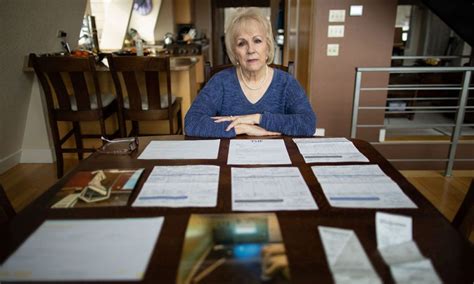
Political figures and public figures alike continue to learn the hard way that a single ill-considered tweet can ignite a firestorm, causing significant reputational damage and potentially ending careers. A review of recent history reveals at least 27 instances where poorly worded or insensitive tweets resulted in public apologies, resignations, and lasting professional consequences, underscoring the volatile nature of social media in the political arena.
The immediacy and broad reach of Twitter, now known as X, amplify the impact of even minor missteps. What might once have been a private thought or poorly worded comment shared among a few friends can now be broadcast instantly to millions, creating an environment where swift and decisive reactions are the norm. The following examples illustrate how easily a tweet can go wrong and the potential ramifications for those in the public eye.
Examples of Tweet-Related Controversies:
Several specific examples demonstrate the diverse ways a tweet can lead to disaster. These incidents often involve insensitive remarks, inflammatory statements, or the exposure of hypocrisy.
-
Roseanne Barr: The comedian Roseanne Barr’s career imploded after a racist tweet comparing Valerie Jarrett, a former advisor to President Barack Obama, to an ape. According to the article, “Her show was canceled and her reputation was ruined.” This incident highlights how quickly offensive remarks can lead to professional downfall.
-
Justine Sacco: In 2013, Justine Sacco, a PR executive, tweeted an insensitive joke about AIDS before boarding a flight to South Africa. By the time she landed, her tweet had gone viral, and she was fired from her job. This case demonstrates the rapid spread of online outrage and the severe consequences for those who make insensitive comments. As the article states, she “torched her entire reputation for absolutely nothing.”
-
Gilbert Gottfried: Shortly after the 2011 earthquake and tsunami in Japan, comedian Gilbert Gottfried posted a series of insensitive jokes on Twitter. The backlash was immediate and severe. “He was fired from his role as the voice of the Aflac duck,” the article notes, illustrating the professional repercussions of his ill-timed humor.
-
Anthony Weiner: Former Congressman Anthony Weiner’s political career ended after he repeatedly sent sexually explicit images and messages via Twitter. Despite attempts to salvage his career, the scandal ultimately led to his resignation. The article highlights the pervasive nature of online behavior, stating that his actions “destroyed his political career.”
-
Kevin Spacey: While not directly a tweet, actor Kevin Spacey faced accusations of sexual misconduct, and his initial response on Twitter was widely criticized for deflecting attention and appearing insensitive. The controversy had a devastating impact on his career, leading to his removal from the Netflix series “House of Cards” and the loss of other acting roles.
-
Ted Cruz: Senator Ted Cruz faced criticism for liking a sexually explicit tweet on Twitter. While his office claimed it was an accident, the incident raised questions about his online behavior and judgment. As the article suggests, even accidental actions on social media can have political ramifications.
-
Donald Trump: Former President Donald Trump’s use of Twitter was often controversial. His tweets frequently sparked outrage and debate, and some were accused of being inflammatory or misleading. The article implicitly references this through the general examples of political figures facing scrutiny for their social media activity.
-
Kathy Griffin: Comedian Kathy Griffin posted a photo on Twitter holding a mock severed head resembling then-President Donald Trump. The image sparked widespread condemnation, leading to cancelled performances and significant backlash. This incident underscores the sensitivity surrounding political satire and the potential consequences of crossing the line.
-
Moira Donegan: In 2017, Moira Donegan created a Google Sheet called “Shitty Media Men,” which allowed women to anonymously share allegations of sexual misconduct against men in the media industry. While not a tweet, the incident sparked a fierce debate about online accountability and the power of social media to expose alleged wrongdoings.
-
Danny Baker: BBC Radio host Danny Baker was fired after posting a racially insensitive tweet about the birth of Prince Harry and Meghan Markle’s son. The tweet depicted a chimpanzee wearing clothes with the caption, “Royal Baby leaves hospital.” The BBC deemed the tweet “a serious error of judgment” and terminated his contract.
-
Justine Sacco (Again): The article highlights Justine Sacco as an example of how not to use social media. Sacco’s ill-considered tweet about AIDS before traveling to Africa went viral, costing her job and reputation.
-
Kenneth Cole: Fashion designer Kenneth Cole faced criticism for a tweet that appeared to capitalize on the political unrest in Egypt. The tweet, which promoted his new collection, was widely seen as insensitive and opportunistic.
-
Octavia Nasr: CNN’s Octavia Nasr was fired after tweeting her respect for Hezbollah’s spiritual leader, Sayyed Mohammad Hussein Fadlallah, upon his death. The tweet was seen as a violation of CNN’s journalistic standards.
-
Scott Stringer: Scott Stringer, a New York City mayoral candidate, faced allegations of sexual misconduct, which were amplified by social media. While the allegations were later deemed unsubstantiated by many, the online furor damaged his campaign.
-
Numerous Politicians: The article alludes to many unnamed politicians who have faced scrutiny for deleting tweets or blocking users who disagree with them. These actions are often seen as attempts to silence dissent and control the narrative.
-
Celebrities Endorsing Products: Celebrities who endorse products on Twitter without disclosing that they are paid for doing so have faced legal and ethical challenges. The Federal Trade Commission (FTC) has guidelines in place to ensure transparency in social media advertising.
-
Tweets Mocking Tragedy: Countless individuals have faced criticism for posting insensitive or mocking comments about tragedies or disasters. These tweets often go viral and result in widespread condemnation.
-
Doxxing: The practice of revealing someone’s personal information online (doxxing) has become a common form of online harassment. Tweets that expose someone’s address, phone number, or other private information can have serious consequences.
-
Political Misinformation: The spread of political misinformation on Twitter has been a major concern in recent years. Tweets that contain false or misleading information can influence public opinion and undermine trust in institutions.
-
Online Harassment: Twitter has been criticized for its role in facilitating online harassment. Tweets that contain threats, insults, or other forms of abuse can have a devastating impact on the victims.
-
Cancel Culture: The phenomenon of “cancel culture,” where individuals are ostracized or boycotted for past actions or statements, has been heavily influenced by Twitter. A single tweet can trigger a wave of online outrage that leads to someone’s professional downfall.
-
Hypocritical Statements: Politicians and public figures who make hypocritical statements on Twitter often face swift and severe backlash. These incidents highlight the importance of consistency between words and actions.
-
Insensitive Jokes: Comedians and others who make insensitive jokes on Twitter risk offending large segments of the population. The line between humor and offense can be difficult to navigate, and even well-intentioned jokes can backfire.
-
Defensiveness: When confronted with criticism on Twitter, individuals who respond defensively often make the situation worse. A more effective approach is to acknowledge the criticism, apologize if necessary, and take steps to address the concerns.
-
Lack of Context: Tweets that lack context can easily be misinterpreted. It is important to provide sufficient information to ensure that your message is understood as intended.
-
Grammar and Spelling Errors: While seemingly minor, grammar and spelling errors can undermine your credibility on Twitter. Proofreading your tweets before posting them can help you avoid embarrassment.
-
Ignoring Criticism: Ignoring criticism on Twitter can be seen as arrogant or dismissive. It is important to engage with your critics in a respectful and thoughtful manner.
The Evolution of Social Media Scrutiny:
The scrutiny surrounding social media activity has intensified over time. Early examples of tweet-related controversies were often met with shock and disbelief. However, as social media has become more integrated into daily life, the public has become more attuned to the potential for misuse. This increased awareness has led to a greater willingness to hold individuals accountable for their online behavior.
The rise of social media platforms like Twitter, now X, has fundamentally altered the landscape of public discourse. The ability to communicate directly with a global audience has empowered individuals and organizations to bypass traditional media outlets and share their messages directly with the public. However, this increased power comes with increased responsibility.
Consequences and Damage Control:
The consequences of a tweet gone wrong can be severe, ranging from public apologies and professional setbacks to the complete destruction of one’s reputation. Damage control strategies often involve issuing public apologies, deleting the offending tweet, and engaging in crisis communication efforts. However, even the most carefully crafted apology may not be enough to undo the damage.
Many individuals and organizations have learned the importance of having a social media strategy in place. This strategy should include guidelines for appropriate online behavior, as well as procedures for responding to criticism and managing crises.
The Role of Political Affiliation:
The reaction to a controversial tweet often depends on the political affiliation of the person who posted it. Individuals on the left and right are often quick to condemn those on the opposing side, while defending those who share their political views. This partisan divide can make it difficult to have a rational discussion about the merits of a particular tweet.
The Future of Social Media in Politics:
Social media is likely to continue to play a significant role in politics in the years to come. Politicians and public figures will need to be even more careful about their online behavior, as the scrutiny surrounding social media is likely to intensify. The ability to communicate effectively and responsibly on social media will be an essential skill for anyone seeking to succeed in the public arena.
Moving Forward: Best Practices for Social Media Use:
Given the potential pitfalls, it is crucial for individuals and organizations to adopt best practices for social media use. These practices include:
- Think Before You Tweet: Take a moment to consider the potential impact of your message before posting it.
- Avoid Insensitive or Offensive Remarks: Steer clear of topics that could be considered offensive or insensitive.
- Be Authentic: Be true to yourself and avoid trying to be someone you’re not.
- Engage Respectfully: Treat others with respect, even if you disagree with them.
- Be Transparent: Disclose any conflicts of interest or affiliations that may be relevant to your message.
- Proofread Your Tweets: Check for grammar and spelling errors before posting.
- Be Prepared to Apologize: If you make a mistake, be prepared to apologize sincerely and take steps to correct the error.
- Monitor Your Social Media Accounts: Keep an eye on your social media accounts to see what others are saying about you.
- Develop a Social Media Strategy: Create a plan for how you will use social media to achieve your goals.
- Seek Professional Advice: If you are unsure about how to use social media effectively, seek professional advice from a public relations or marketing expert.
By following these best practices, individuals and organizations can minimize the risk of a tweet gone wrong and maximize the potential benefits of social media. The key is to be mindful, respectful, and responsible in your online interactions.
The pervasive nature of social media demands a heightened awareness of the potential consequences of every post. Public figures must navigate the digital landscape with caution, recognizing that a single misstep can have lasting repercussions. The examples cited serve as a cautionary tale, highlighting the importance of responsible social media use in the age of instant communication. The ability to communicate effectively and responsibly on social media will be an essential skill for anyone seeking to succeed in the public arena.
Frequently Asked Questions (FAQ):
-
Why are tweets so often the cause of political and reputational damage?
Tweets are concise and easily shareable, amplifying their reach and impact. Their immediacy leaves little room for reflection, increasing the likelihood of impulsive or poorly considered statements. Additionally, the permanent nature of digital communication means that even deleted tweets can be retrieved and circulated, making it difficult to retract or mitigate the damage caused by an offensive or insensitive post. Social media also lends itself to knee-jerk reactions, and mob mentality. The lack of nuance in written communication and the absence of non-verbal cues can lead to misinterpretations, exacerbating the potential for misunderstandings and controversies.
-
What types of tweets are most likely to cause controversy?
Tweets containing racist, sexist, or otherwise discriminatory language are almost certain to generate outrage. Statements that are perceived as insensitive to victims of tragedy or misfortune are also highly problematic. Misleading or false information, particularly when it pertains to political matters, can quickly spread and undermine trust. Finally, personal attacks or inflammatory rhetoric directed at individuals or groups are likely to provoke strong reactions and damage the sender’s reputation. Hypocritical statements that contradict the sender’s previous actions or beliefs are also a common trigger for controversy.
-
How can public figures protect themselves from tweet-related controversies?
Public figures should exercise extreme caution and carefully consider the potential impact of their tweets before posting. Developing a social media strategy with clear guidelines for appropriate online behavior is essential. It is also advisable to have a team of communications professionals review tweets before they are published, especially when dealing with sensitive or controversial topics. Engaging respectfully with critics and being prepared to apologize sincerely for mistakes can help mitigate the damage caused by a tweet gone wrong. Training in crisis communication is also valuable, enabling individuals to respond effectively to online controversies. Practicing empathy and considering diverse perspectives before posting can help avoid insensitive or offensive remarks.
-
What role does political affiliation play in the reaction to controversial tweets?
Political affiliation often shapes the response to controversial tweets. Individuals are more likely to defend those who share their political views, even when the tweet is problematic, while simultaneously condemning those on the opposing side. This partisan divide can make it difficult to have a rational discussion about the merits of a particular tweet. The tendency to view social media controversies through a political lens can exacerbate polarization and hinder constructive dialogue. Social media algorithms often reinforce these biases by prioritizing content that aligns with users’ existing beliefs, creating echo chambers where dissenting opinions are rarely encountered.
-
Is there a way to recover from a tweet that has caused significant damage?
Recovering from a tweet that has caused significant damage is challenging but not impossible. A sincere and timely apology is crucial, acknowledging the harm caused and expressing remorse for the offense. Deleting the offending tweet is often necessary, but it is important to understand that it may already have been archived and shared widely. Engaging in constructive dialogue with those who have been affected by the tweet can help rebuild trust. Demonstrating a commitment to learning from the mistake and taking concrete steps to prevent similar incidents in the future is also essential. In some cases, seeking professional help from a public relations or crisis communication firm may be necessary to manage the fallout and restore one’s reputation. Time is also a factor; allowing time for the controversy to subside can help facilitate healing and forgiveness. Ultimately, the ability to recover depends on the severity of the offense, the sincerity of the apology, and the willingness of the public to forgive.









